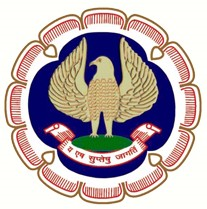ABOUT DISCIPLINARY MECHANISM OF ICAI
As a statutory body regulating the profession of Chartered Accountancy in India, the ICAI has had a long and glorious history in its 76 years of existence as the largest professional body of Chartered Accountants in the world. As the premier accounting body, the ICAI has delivered to the world high class CA professionals apart from setting bench- marks in the quality of financial reporting not only in India but across the Globe.
ICAI not only performs its statutory duties as a regulator of the profession of Chartered Accountancy in India by formulating Accounting Standards in keeping pace with changing economic-scenario but also has enforced the ethical values as enshrined in Code of Ethics and proactively taken action against its erring members, found guilty of professional misconduct through its well-defined disciplinary mechanism as provided under the Chartered Accountants Act, 1949 and the Rules framed thereunder.
Under the disciplinary mechanism, a mandatory duty has been cast upon the Disciplinary Directorate of the ICAI to look into any alleged lapses/irregularities committed by its members across the country so as to lay down a strong foundation of credibility to the future members joining the profession. While, most of the members of the profession are providing selfless dedicated services through their professional expertise and experience to the Society and world at large, yet there is a constant need to caution and to emend the negligible few who fall on the wrong side of the law through its Disciplinary mechanism.
Disciplinary Mechanism of ICAI has basically following three limbs:
The detailed procedures to be adopted by all the above three limbs of the Disciplinary Mechanism of ICAI in carrying out its functions have been prescribed in the Chartered Accountants (Procedure of Investigations of Professional and Other Misconduct and Conduct of Cases) Rules, 2007 notified by the Central Government in terms of the provisions of Section 21(4) of the Chartered Accountants Act, 1949.



